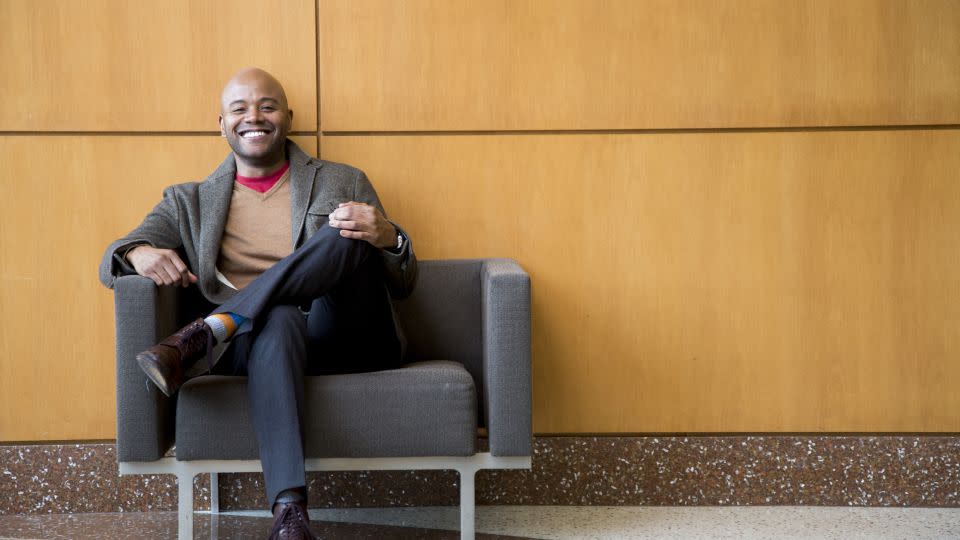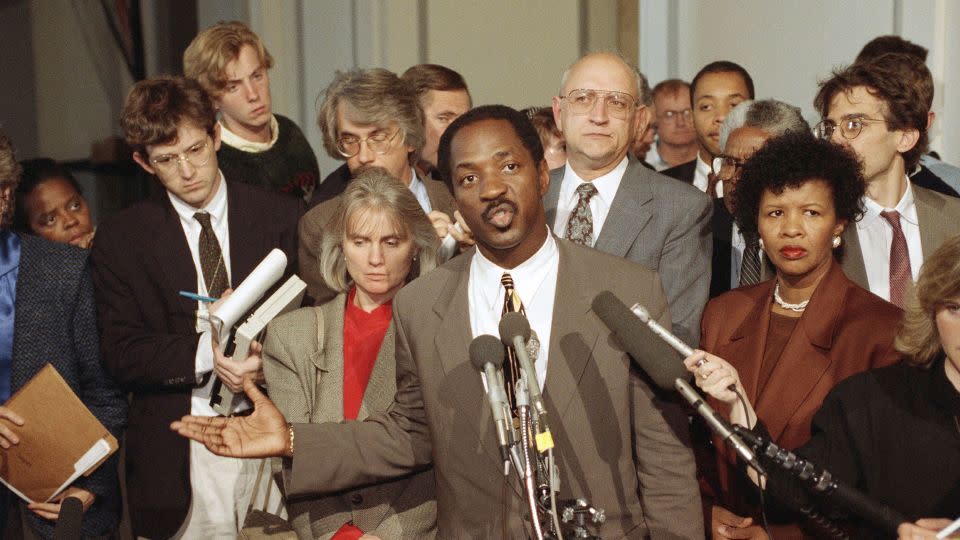Opinion: The legend who mentored the Obamas is a friend I’ll never forget
- Oops!Something went wrong.Please try again later.
- Oops!Something went wrong.Please try again later.
- Oops!Something went wrong.Please try again later.
- Oops!Something went wrong.Please try again later.
- Oops!Something went wrong.Please try again later.
- Oops!Something went wrong.Please try again later.
Editor’s Note: Peniel E. Joseph is Barbara Jordan chair in ethics and political values and founding director of the Center for the Study of Race and Democracy at the LBJ School of Public Affairs at the University of Texas at Austin, where he is a professor of history. He is the author of “The Third Reconstruction: America’s Struggle for Racial Justice in the Twenty-First Century.” The views expressed here are his own. View more opinion on CNN.
Charles Ogletree, one of America’s most significant legal scholars, defense attorneys and social justice litigators of the post-civil rights era, recently passed away from Alzheimer’s disease. I first met “Tree,” as friends called him, in Boston during the early aughts. I knew of him from the Anita Hill hearings and found him to be warm and inviting. After I moved to Boston several years later to teach at Tufts University, Tree became a friend and mentor.

The first-born son of parents who worked on farms in California, Ogletree attended Stanford University and Harvard Law School, the recipient of both his individual talents and the widening doors of opportunity made possible by affirmative action efforts in the 1970s. After law school, Ogletree worked in the District of Columbia Civil Service for eight years, before returning to Harvard Law School in 1984 as a lecturer and being named a professor in 1993. As a litigator, Ogletree cultivated a reputation for an indefatigable work ethic surpassed only by his innate personal compassion. Clients, friends and those in need could call Ogletree at any time, day or night.
What I found most remarkable about him, in addition to his quick mind, heart, laugh and warm demeanor, was his proud humility. Despite being one of the most well-connected and sought-after legal experts (who defended the late rapper Tupac Shakur and organized an impactful legal clinic to help the disadvantaged), Ogletree stood as an incubator for new generations of students, activists, scholars and citizens who sought to make racial justice the beating heart of our democracy. He helped to organize a “Saturday School” forum to help Black Harvard Law students and a “Breakfast Club” that featured high-profile (and often earthy) guests who offered Black students, faculty and community members in the Boston area a chance to build relationships that transcended their individual professional status.
He invited me to guest lecture in one of his classes during my time in Boston, a memory that I will always cherish. Tree’s generosity of spirit impacted my professional trajectory in profound ways. I was honored when he provided a generous blurb for my 2014 biography of civil rights activist turned Black Power revolutionary Stokely Carmichael (later Kwame Ture). Every time I saw Tree, he showed an interest in what I was doing and extended invitations to events and happenings he was engaged in. He served as a role model for three generations of Black social justice advocates in ways that would have made Derrick Bell, one of his mentors, proud.

The timing of Ogletree’s death—on August 4, former President Barack Obama’s birthday—is especially significant, given that, as one of Harvard University Law School’s pioneering Black faculty, he taught Michelle and Barack Obama during their respective time in law school. Ogletree continued to serve as a friend and mentor to the Obamas in their post-Harvard careers, and those of others. “On campus, people would always talk about this Professor Ogletree and how supportive he was,” wrote the former president. Ketanji Brown Jackson, the first Black woman on the Supreme Court, counted Ogletree as one of her most important and impactful mentors, someone who “inspired legions of students to seek to improve our criminal justice system and make our world a better place.”
Henry Louis Gates Jr., the renowned Harvard University Black Studies scholar, remembered his friend Tree as “a master of the art and science of fishing,” which they spent much time enjoying together on Martha’s Vineyard.
In 1991, Ogletree served as Anita Hill’s attorney during the contentious Supreme Court hearings of Clarence Thomas. Hill’s courageous effort to expose the workplace sexual harassments she allegedly received as a colleague of Thomas’ in the early 1980s paved the way for the Me Too movement. (Thomas denied all wrongdoing.)
In 2003, Ogletree was part of the legal team that sued for reparations for survivors of the 1921 Tulsa race massacre that has recently, in light of the death of George Floyd, become a national touchstone for confronting generation legacies of slavery and racial violence. Although the case was thrown out, it anticipated and amplified our contemporary national conversation around reparations for slavery and racial injustice.
Tree publicly announced his Alzheimer’s diagnosis in 2016, the year after learning of it. Many of the people who knew him cried then, as they do now. A federal courthouse in his hometown of Merced, California, has been named in his honor. As has a Charles Ogletree Humanitarian Award inaugurated by the men’s basketball team at Harvard, organized by his good friend and head coach Tommy Amaker. The tributes and recognition will continue as they should.
But Tree’s biggest legacy reverberates in the thousands of lives he touched, including mine. In so many ways, he served as an ambassador for generations of scholar-activists — in Black Studies, history, political science and other disciplines. We taught his work and felt comforted knowing that such a knowledgeable, strategic and empathetic man was in the world fighting the good fight.
Charles Ogletree stood at the center of a web of interconnected friendships, professional relationships and discerning inquiry all bound together by his personal sincerity, political integrity and unapologetic love for Black people. He is truly one of the most extraordinary people to have ever lived, and I count myself both fortunate and honored to have considered him not only a mentor but also a friend.
For more CNN news and newsletters create an account at CNN.com

